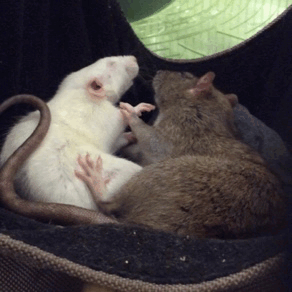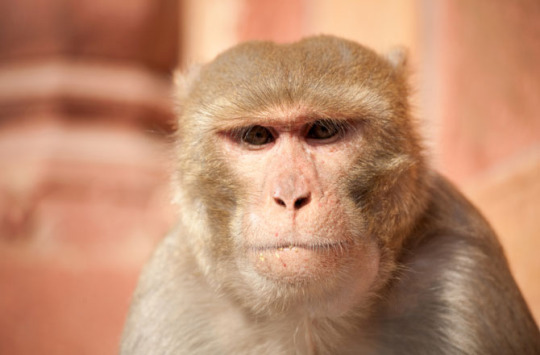#i decided to forego consistency for fun (also easier)
Text





I decided to play in the #Rathalaugust challenge, here's the first 5 hunts!
#rathalaugust2023#monster hunter#i decided to forego consistency for fun (also easier)#pink rathian#tzitzi ya ku#paolumu#yian kutku#chameleos
372 notes
·
View notes
Text
The Razorback Renaissance Plus Observations From Auburn-Arkansas
To say the basketball program here in Fayetteville, Arkansas is an afterthought would be a stretch, but that also isn’t to say that basketball reigns supreme. If the launch of the XFL and it’s 3.3 million viewers is any indication, the nation-wide addiction of football has long matriculated in the state as its primary focus, along with the perennial powerhouse baseball, but it is about time to start to the basketball team. And fans are beginning to take notice.
I went to the Razorbacks hoops game against the 11th ranked Auburn Tigers (more on this in a second), and the buzz of Bud Walton Arena was electric. And rightfully so. This 2019-20 team is the most fun Arkansas Razorbacks basketball team I can remember watching. The team is not filled with many guys capable of creating their own shot from all three levels of the court (Mason Jones is really the only one), yet coach Eric Musselman has still managed to get big-time performances in big spots from Jones, fellow potential NBA draft pick Isaiah Joe and go-to glue-guy, to the extent that type of player exists, Jimmy Whitt Jr. Musselman plays to the strengths of his players; Joe has shot 212 3s before injuring his knee, while Jimmy Whitt, a midrange assassin and Shaun Livingston doppelganger in terms of style of play, has only shot one. Offense can be hard to come by with only one player shooting above 35% from 3 (that being big man Adrio Bailey, shooting 40% on only 20 3s on the season), but Musselman is not afraid to get creative to help kickstart the offense. When they can, they push it at will in transition. He’s trot out lineups with two big men on the floor together; Muss will play lineups with no big men at all. That’s important their defense has not suffered under just about any circumstance or lineup Muss decides to play. According to kenpom.com, Arkansas’ defense ranks 13th in the country in defensive efficiency. Jimmy Whitt is the linchpin that holds these lineups. Whether he’s guarding a guard on the perimeter or jostling with a big man to deny post position, his competitiveness on the defensive end matriculates across the team. They dig for steals, they rotate and recover, switch when necessary, and take charges (for what it is worth, they rank 21st in the country in steals per game). This is not only great to see for this year’s team, but for the future as well.
This year is a bit of a transition year for the Hogs. This is the first year of Musselman at the helm after taking over for Mike Anderson. Not only is he implementing a new modern style of play for the state of basketball today, but he’s also instilling a culture for the players of tomorrow. This is especially important because one of the best Razorback recruiting classes of all-time is coming into the fold next season. Montverde Academy star and Little Rock native Moses Moody (part of what some say is one of the best high school teams ever) is the headliner, alongside fellow Arkansas natives KK Robinson, Davonte Davis and Jaylin Williams. Musselman has gotten the most of a team without a lot of premier talent; all four of these players are in ESPN’s Top 100. On top of that, transfers Connor Vanover (California) and JD Notae (Stetson) will all be eligible as well, and there’s a non-zero chance both Mason Jones and Isaiah Joe forego the NBA to make a run next season. Guard Desi Sills will probably be back as well. Next season is the first one Musselman can really mold into his own image and will have plenty of talent and versatile players to do so with.
This year’s Hogs team is a very good team. They don’t have a loss by double digits and multiple losses in overtime. They’ve won big games on the road over Indiana and Alabama, a couple of tournament-caliber teams. That isn’t to say they’re a perfect team; offense can be a struggle and they seemingly have to make a choice between speed on the perimeter to push it in transition or size for rebounding purposes. But they’re an NCAA tournament-caliber team and have routinely pushed or beaten similar teams this season; they had a lead late vs Auburn but blew it, they led Kentucky with seven minutes to go, they lost by two on the road against LSU, they beat Indiana (part of a loaded Big 10) on the road, they held potential lottery pick, Kira Lewis Jr., in Tuscaloosa, Arkansas spanked a solid Tulsa team at home. They recently slipped up in Missouri and don’t have much wiggle room for losses like that in the future, but also have games against Florida and LSU upcoming, games they can certainly win.
Before the season started, as I was heading back to my car after class, I bumped into Mason Jones. I tried to play it cool and let him be, but after asking him what floor to press in the elevator we were entering, I couldn’t help myself and tell him that I was excited for the season and the arrival of Coach Musselman. I distinctly remember him telling me ‘You’re gonna love Coach Muss!’ I wished him and the team (and his brother) good luck on the season once we arrived to our destination and went on from there to go to three games so far this season and catch the games when I could and record them to watch later when I couldn’t. Watching them this season, Arkansas has proven they can play with anybody and are not scared of anybody, partly why this season has been fun for me. But next season can be even better and foreshadow a very bright future for years to come. Something special is brewing here. It’s time to start paying attention.
Takeaways from Auburn-Arkansas
Isaac Okoro Is a Pro
Mason Jones was the best player on the floor last Tuesday after he dropped 40 points, but Auburn’s Isaac Okoro was very impressive in his own right. He’s projected to be a lottery pick by many, and after watching him live, you very much could see why. No one scored on him. I’m actually serious; I don’t think anybody scored on him. He’s strong, quick and tenacious defensively, unwilling to concede an inch. I’m not sure why Bruce Pearl did not have Okoro guard Jones all game long, but when he did, he shut him down. He was fantastic all game, both on the ball and off the ball defensively. He’s not the best shooter percentage-wise but hit two of four from deep to add to his 14 point night. OG Anunoby of the Toronto Raptors may be a good comp for Okoro. There is a lot to work with here. If he adds a consistent jump shot to his game he’s going to return on the investment of a team that drafts him in the first round.
Mason Jones Is Too
Jones struggled when guarded by Okoro, but not when anybody else was on him. He put 40 points on Auburn’s head, scoring from everywhere on the floor. He’s got a mean step-back to his game. He’s a violent, physical driver willing to absorb contact (he shot 16 free throws in this game). Arkansas lets him go iso a bit (because they don’t have a lot of other options) and he’s proven time and time again he can create his own shot (this was his fifth 30 point game this season) and be fairly efficient (he has a 51.4% effective field goal percentage this season). But that doesn’t mean he isn’t unselfish either. With a condensed floor, he is often forced to give the ball up and is not afraid to do so. He’s adept at moving without the ball as well, often finding open spots along the three-point line to help himself get better looks. It’s time he gets more attention from NBA draft folks because he often carries this team when they don’t have much working as he did against Auburn.
Auburn’s Guards Have Cojones
Samir Doughty and J’Von McCormick, man. These dudes got some stones to them. Any time Arkansas would begin to separate, one of these two would hit a big shot to keep it fairly close. McCormick hit a huge three in the last 2 minutes of regulation to get Auburn its first lead in a very long time. Both hit big free throws in overtime to clinch the game (especially more important when you consider Mason Jones missed a free throw late in regulation that could’ve won Arkansas the game rather than go to overtime). McCormick followed that up by hitting another game-winner against LSU on Saturday. Auburn is not a perfect team, but these guards are the types of guards who can help propel a big run in the tournament. I sure as hell wouldn’t want to face them.
Solutions for Arkansas Spacing
With Isaiah Joe sidelined for the foreseeable future, Arkansas needs to find ways to navigate through their spacing woes. That isn’t to say they didn’t have these issues when he was playing as well, but they were easier to navigate because of the type of shooter Joe is and how well and far he can shoot it from. His presence alone creates so much attention for the defense to free up some holes for Arkansas’ guards whose strength does not come from their jump shot. On Saturday against the Missouri Tigers, these issues couldn’t be more apparent as Mason Jones struggled and they dropped another game in overtime. Jones only went 3-14 from the field and the Hogs as a whole shot 3-14 from three. Perhaps a solution could be to run more pick and rolls with guards to try to force a smaller guard to be mismatched against Jones? Maybe Adrio Bailey should be camped in the corner and hope his limited sample size of being a 40% shooter from three is legit? Maybe someone buried on the bench is known as a shooter and should get more run? I’m not sure, but something needs to change to help the offense. Two weeks ago, Arkansas was an 8 seed in ESPN’s Joe Lunardi’s bracketology. They’re now a 10 seed after this slip-up against Missouri. They need to figure something out soon or they’re going to play themselves on the other side of the dreaded bubble.
That’s it for this. If anyone wants to catch a game, I’ll be going to the LSU game in Bud Walton on March 4th. I’ll see you all then. Thanks for reading. Go Hogs!
0 notes
Text
Let’s Talk About Sex
A look at the horny side of the brain
What I find so interesting about neuroscience is how it applies to every aspect of our lives. It isn’t some swirling magical force that makes you do the things you do, it’s the hormones and transmitters in your body and brain. So I decided to look into the neuroscience of sex and sexual desire, because it’s a pretty damn interesting topic to learn about.

For easier reading, I’ve split the topic up into the desire for sex, the pleasure felt during sex, and the post-sex satisfaction...
1. Desire
The neurotransmitter dopamine is sent from the brainstem to many brain areas associated with reward. This happens with food and it happens with sex: those two most primitive desires. Cocaine-users often crave sex due to the build up of dopamine in their brains after taking the drug and thus its effects are amplified.
While it is rather difficult to monitor neurotransmitter levels inside a working human brain, it is feasible to do so with a rodent brain (using very tiny catheters). So: you have Mr. Rat in the test chamber, and a sexually-receptive Mrs. Rat in there with him; however, a barrier separates the two. The anticipation of sex involves the reward centres of his brain being flooded by dopamine. Removing the barrier and letting the sex commence will then cause dopamine levels to decrease rapidly.
Interestingly, if Mr. Rat spies a new female rat, his dopamine levels and arousal will increase once more. Lots of sex with lots of females is DNA’s greedy, narrow-minded way of getting passed on as much as possible.

The emotion centre of the brain, the amygdala, helps us in our approach to desirable things (such as food and sex). If you are aroused by your partner, your amygdala would be flooded with dopamine, providing the urge to get you to act on that arousal and have sex. Once the sex has begun, the amygala settles down as the desire has been achieved. So much complex brain activity for something that comes so naturally!
Fun Fact!
Research has been carried out showing male Rhesus monkeys actually enjoy porn (i.e. photos of female monkeys’ bums), as demonstrated by their willingness to forego tasty juice to stare at the photos. No judgement here, monkeys, no judgement here.

He’s got booty on the brain (inothernews.com)
2. Pleasure
Here we are: the climax, the orgasm, the payoff, the reward. Many interesting things happen in your brain before and during an orgasm. To clarify, studying brains during orgasm is difficult, because who is really in the mood when they’re hooked up to imaging equipment?
To begin with, back to the idea of pleasure and reward: the nucleus accumbens is involved in our sense of pleasure, and the ventral tegmental area (VTA) is highly influential in the brain’s reward pathway - so it is no surprise that these areas become more active during an orgasm. Biology needs to keep us eager to procreate, and orgasms are a pretty good method for this.
The anterior cingulate, the ventromedial prefrontal cortex, the parahippocampal gyrus, and the poles of the temporal lobes: these words may sound like scientific gibberish, but these areas of the brain show a decrease in activity when we orgasm. What’s interesting is that the anterior cingulate is involved in monitoring mistakes, the ventromedial prefrontal cortex in thinking about ourselves and what we fear, the parahippocampal gyrus in representing the environment around us, and the poles of the temporal lobes in the organisation of our knowledge of the world.
When we orgasm, all these brain areas show a drop in neural activity, indicating that the intense pleasure we feel is also coupled with a transcendent experience that takes us away the worries of life and even blurs the boundaries between our body and the environment around us. In other words, sex can take our mind away from the blob of flesh, bone, and worrying brain that we consist of, and into nothing but unthinking, temporary bliss.

3. Satiation
Orgasms tend to lead to an emotionally-satisfied state, where you lie there and feel content for a little while. It is likely we can thank prolactin, oxytocin, and beta-endorphins released in the brain for this feeling.
Prolactin counteracts the effect of dopamine and decreases the levels of the sex hormones (oestrogen and testosterone). This is most notable in men, who experience a refractory period after sex where they feel little sexual desire whatsoever. Guess what! Drugs that inhibit prolactin are being researched as we speak so that men can keep on riding that sex train as determinedly as women.
Oxytocin, the ‘trust’ hormone that is released to form bonds between people, acts as the ‘cuddling’ hormone here. When you and your partner lie in bed together, post-orgasm, and share a lovely cuddle, you can thank the recently-released oxytocin flooding your brains.
The beta-endorphins lower bodily stress, helping you relax and feel euphoric. Sex is well-known for being a stress-reliever!

Pillow talk
I hope this has been an insightful wander through the brain of a sexually-active person. It may be a slightly taboo topic, but sexual desires are completely natural and understanding the brain’s wiring behind these desires is fascinating - and I hope you agree!
Thanks for reading
-Al
2 notes
·
View notes
Text
Here’s How To Become a Morning Person
This article originally appeared on Time.com.
You have grand ambitions: to start a business, to write a book. But chances are you work long hours, or household responsibilities consume your days. By the time you finish all you have to do, you have no energy for anything you want to do beyond turning on the TV.
Yet some busy people do make time for their priorities. What’s their secret?
They do them first. They get up early. Earlier than they have to. They use the time before work for something other than just getting ready for work. Morning by morning, they make progress on what matters, and often achieve as much before breakfast as other people do in a day.
It’s not exactly fun to forego the snooze button, but these early hours are often the best time to do things for yourself, before everyone else demands attention. With a little schedule reorganization, becoming a morning person is more doable than you think.
I first learned that mornings could be transformational years ago, when I was studying a busy lawyer’s schedule. She wanted to spend more time with her daughter, but she had little control over when she left work. This state of affairs made her sad, until we looked at her schedule and saw that she and her daughter were both awake relatively early. With everyone focused on getting out the door, though, no one was really aware of how much time was passing, and how it might otherwise be used. After thinking it through, the lawyer decided to get up earlier and get ready before her daughter rose. Then she used this morning time to play, make great breakfasts or snuggle and read stories. As a result, she got the quality time she wanted, no matter what happened the rest of the day.
Once I realized the potential of mornings, I started to notice morning routines in many successful people’s schedules. It’s a great time for anything that’s important that life has a way of crowding out. Like exercise. As an athlete once told me, there will always be a reason to skip a 4 p.m. workout—and it’s going to be a good reason, too. There are fewer reasons to cancel a 5:30 a.m. workout. It’s convenient: you only have to shower once! You’re also more likely to make a habit of it. One study of fitness tracker data found that people who exercise consistently are more likely to be morning exercisers. People tend to follow routines in the morning—they wake up at the same time and leave for work at the same time—so if you build exercise into your morning routine, it will happen.
[brightcove:4802233870001 default]
Mornings are also great for focused thinking. Maybe you manage lots of people in your daily life, and you want to be available for them, but you have other things you need to accomplish. Get up an hour earlier, and you can knock out your most important task of the day. Then you can relax when your employees come with questions and concerns. You’re no longer trying to race back to what you were doing before you were interrupted.
Or you could use this time to tap those creative impulses that are hard to nurture when jobs, kids and bills clamor for attention. Get up an hour earlier and write 500 words, four days a week, and you’d have a full-length novel in less than a year.
The time is there, but when I suggest people get up earlier than they need to, I know what many will exclaim: I’m not a morning person! It is true that some people function best at night, but not as many as claim night owl status. Here’s how to tell if you’re a true night person: are you writing the Great American Novel at night? Are you coming up with and executing your best business ideas at 11 p.m.? If so, great. But when most people take an honest look at how they’re spending the hours before bed, the answer is that there’s a lot of TV they didn’t mean to watch, scrolling through photos on social media of people they didn’t like in high school anyway and puttering around the house.
A better approach is to cut off the puttering, go to bed earlier, wake up earlier and turn unproductive evening hours into productive morning hours.
I know this is easier said than done. It might help to set up a reward system while you build the habit: good coffee with real cream, for instance, or 10 minutes reading something inspirational before you go for that run. I also know some phases of life don’t lend themselves to all kinds of morning productivity. My toddler likes to do great things before breakfast, but unfortunately, he can’t do them by himself. So one of us is up with him every day around 5:30 a.m., meaning not all mornings are available for quality time on the treadmill.
But children do grow up, and until then there’s quality morning time with him. Ultimately, making the most of mornings is about recognizing that they set the tone for the whole day. A win scored early creates momentum. Momentum creates results. That’s definitely worth waking up for.
Laura Vanderkam is the author of I Know How She Does It (June 9, 2015), 168 Hours and What the Most Successful People Do Before Breakfast, a paperback compilation of the bestselling ebook series, all from Portfolio/Penguin. Find her at lauravanderkam.com.
http://bit.ly/2kdOf7b
from WordPress http://bit.ly/2kcozwD
0 notes